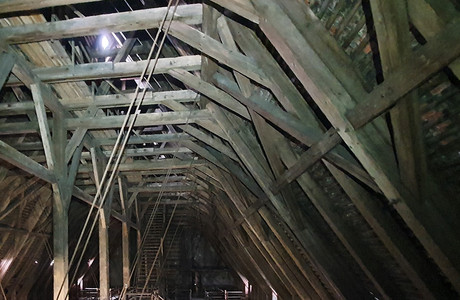Development of processes for the chemical conversion of organochlorine pesticides
29. February 2024

In a newly launched research project, IHD scientists are investigating approaches for the transhalogenation and reductive dehalogenation of organochlorine pesticides, in particular DDT, in order to decontaminate treated/contaminated wood.
The resulting hydrocarbons are significantly less toxic, much more volatile compared to the original compounds and can therefore be emitted from the wood much more quickly without causing any relevant health or other impairments.
Transhalogenation, also known as the Finkelstein reaction, is used to convert thermodynamically very stable carbon-chlorine bonds into much less stable carbon-iodine bonds. Starting from these, a number of subsequent reactions are possible, which lead to non-halogenated and therefore less or no longer toxic compounds. The favoured subsequent reaction is reductive dehalogenation. Suitable variants of reductive dehalogenation are being investigated for wood, which lead both directly from organochlorine compounds to dehalogenated products and in conjunction with transhalogenation via iodides.
The process to be developed in the project is intended to ensure that solid wood can be decontaminated in the installed state over a sufficient material depth, which is not possible with currently known methods.
The project with the funding code 49MF220151 is funded by the Federal Ministry for Economic Affairs and Climate Protection as part of the INNO-KOM funding guideline module "Market-oriented research and development".
Contact person at the IHD:
Dr. Martin Fischer
martin.fischer@ihd-dresden.de
